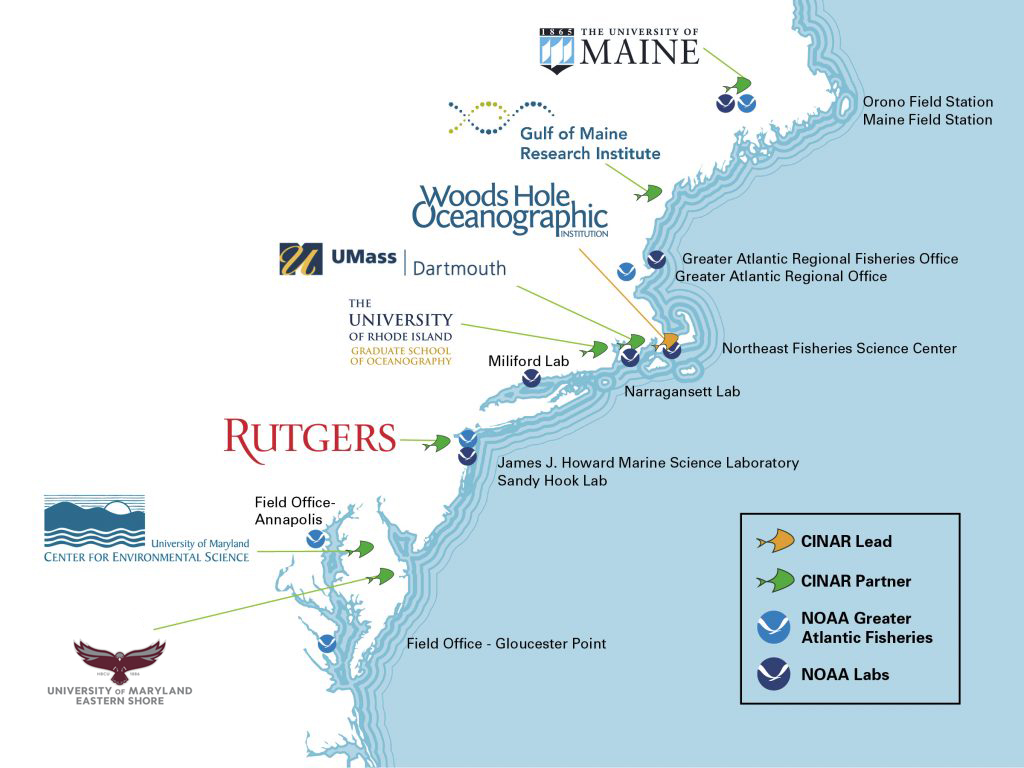About us
Cooperative Institutes (CIs) are NOAA-supported, non-federal organizations that have established outstanding research and education programs in one or more areas that are relevant to the NOAA mission. A CI's expertise and facilities add significantly to NOAA's capabilities, and its structure and legal framework facilitate rapid and efficient mobilization of those resources to meet NOAA's programmatic needs. Some CIs have a thematic focus, whereas others are regional in nature.
The Cooperative Institute for the North Atlantic Region (CINAR) is a regional CI that focuses on the Northeast U.S. Shelf Large Marine Ecosystem (NES LME), a critical region within the North Atlantic that spans from Cape Hatteras to Nova Scotia, encompassing the continental shelf from the continental slope to the northern wall of the Gulf Stream. The CINAR consortium is led by the Woods Hole Oceanographic Institution (WHOI), and includes the Gulf of Maine Research Institute (GMRI), Rutgers University (Rutgers), University of Maryland Center for Environmental Science (UMCES), University of Maryland Eastern Shore (UMES), University of Massachusetts Dartmouth - School for Marine Science and Technology (SMAST), University of Maine (UMaine), and University of Rhode Island (URI). These organizations were selected from the many potential partners in the region to provide the required breadth, depth, and quality of scientific expertise, instrumentation, models, and facilities to address NOAA’s research needs.

